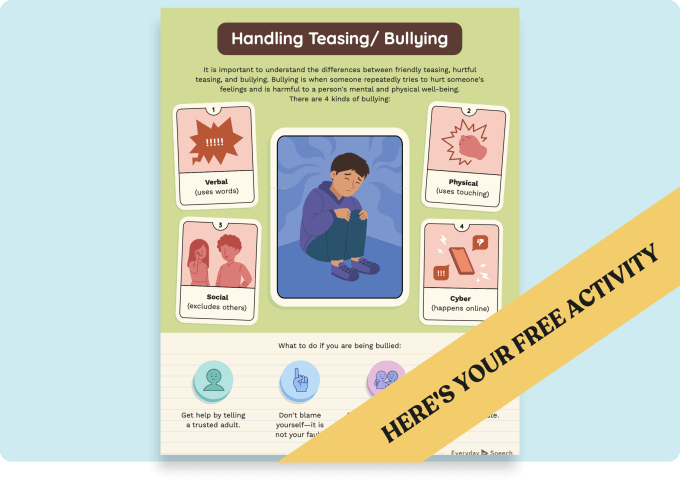Using Topic Radar to Encourage Inclusive Conversations in the Classroom
Get free social skills materials
No-prep lessons on self-regulation, emotional recognition, conversation skills, and more.
Sign up hereIn today’s diverse classrooms, it’s essential for educators to promote inclusive conversations that engage every student. One effective way to achieve this is by using the Topic Radar concept. This approach helps students think about other people’s interests, fostering empathy and understanding. In this blog post, we will explore the Topic Radar concept, a no-prep activity to implement it, discussion questions, and related skills. Finally, we will provide an opportunity for you to access free sample materials to further enhance your students’ social-emotional learning.
Introduction
The Topic Radar is a valuable tool for helping students think about what others like to talk about, ensuring that conversations are more engaging and enjoyable for everyone involved. By considering other people’s interests, students learn to be more empathetic, building stronger connections with their peers. The main skills involved in using the Topic Radar include:
- Thinking about the other person’s interests
- Remembering what you know about them, such as family members, hobbies, or favorite things
- Looking for clues in your surroundings, like something a friend is holding or wearing
No-Prep Activity
A simple, no-prep activity to help students practice using their Topic Radar is the “Find a Common Interest” game. Divide your students into pairs and give them five minutes to discover as many common interests as they can. Encourage them to use their Topic Radar skills to ask questions, listen actively, and observe their partner. After the allotted time, have each pair share their findings with the class. This activity not only helps students practice their Topic Radar skills but also allows them to learn more about their classmates and build stronger connections.
Discussion Questions
- Why is it important to consider other people’s interests when engaging in conversations?
- How can using the Topic Radar help create a more inclusive classroom environment?
- What challenges might you face when trying to use the Topic Radar, and how can you overcome them?
- How can the Topic Radar be used to improve communication in other settings, such as at home or in the community?
- Can you share an example of when using the Topic Radar helped you connect with someone on a deeper level?
Related Skills
Using the Topic Radar effectively is closely related to several other valuable social-emotional learning skills, including:
- Active listening: Paying close attention to what others are saying and responding appropriately
- Empathy: Understanding and sharing the feelings of others
- Adaptability: Being able to adjust your conversation style based on the needs and interests of others
- Self-awareness: Recognizing your own interests and how they may differ from others’
- Collaboration: Working together with others in a respectful and cooperative manner
Next Steps
Now that you have a better understanding of the Topic Radar concept and how it can benefit your students’ social-emotional learning, we encourage you to explore more resources and activities. To get started, sign up for free sample materials that cover a wide range of social-emotional learning skills. By incorporating these resources into your teaching, you will foster a more inclusive and empathetic classroom environment where every student can thrive.

